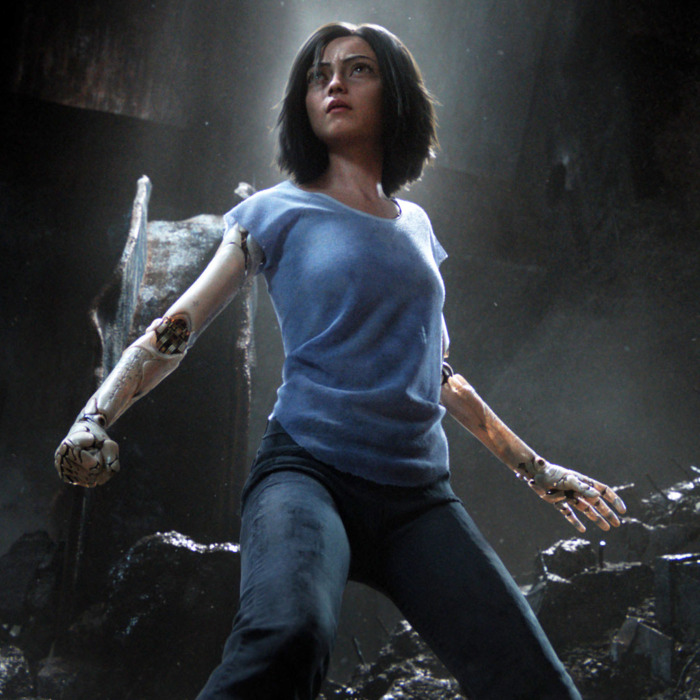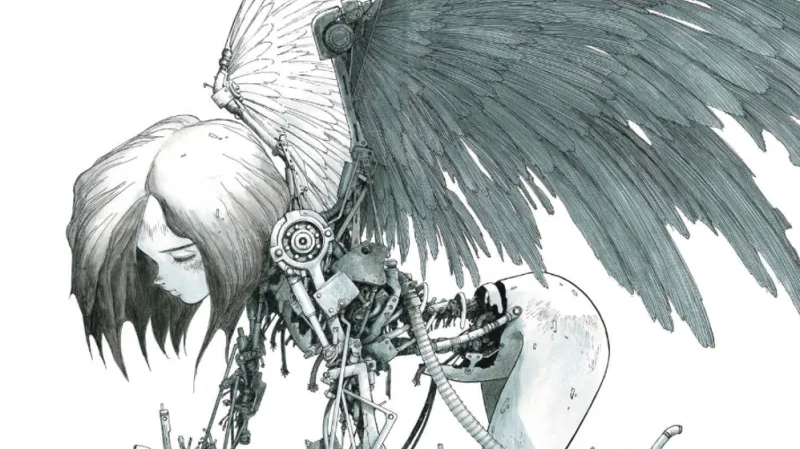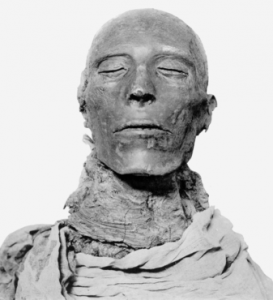I love Bowie’s series of I-can’t-believe-you’re-giving-me-this-bullshit expressions as MTV representative Mark Goodman tries to explain, in a 1983 interview, why they don’t play more black artists and also totally are playing them and also black artists are scary and introducing black artists has to be done glacially slowly and anyway radio stations are worse:
Tag Archives | Antiracism
Lockwood Turner Overman
So Ben Lockwood (Agent Liberty) on Supergirl, Jace Turner on The Gifted, and Orlin Dwyer (Cicada) on The Flash are all different versions of the same character arc, right?
In all three cases, someone starts out a decent-seeming guy who initially has no problem with superhumans (be they aliens, mutants, or metahumans, depending on the show); but after his family suffers as a result of a conflict between two different groups of superhumans, he devotes himself to a campaign against them, drawing no distinction between the good and the bad, thereby becoming a partly sympathetic albeit mostly infuriating antagonist.

From left to right: Lockwood, Turner, Dwyer
There are some differences, of course. For example: Lockwood becomes the leader of the anti-superhuman campaign; Turner is just one member among many; and Dwyer works (mostly) solo. Also: Lockwood’s story is a clear – indeed heavy-handed – metaphor for anti-immigrant hysteria and alt-right media manipulation in the Age of Trump; Turner is a vaguer symbol for various kinds of bigotry and police overreach; and Dwyer’s character doesn’t seem to be intended to make any particular political point.
I’d also say that of the three, Lockwood is the most interesting – partly because Sam Witwer is the most talented of the three actors involved, partly because he gets more clever dialogue. Lockwood’s a less sympathetic antagonist than Turner because he’s slimier and more self-aware, while Turner is sort of perpetually befuddled; but Witwer gives Lockwood a kind of goofy, smarmy charm that’s creepily engaging, while Turner is as bland as a slab of beef. But the most boring and single-note of all is Dwyer, who seems to be of the school of thought that Christian Bale’s Batman voice was too soft and subtle. (Flash is lucky to have the best villain of the three shows this year, but it ain’t Dwyer.)
In related news: on tonight’s Supergirl, Lex Luthor refers to a quotation from Epicurus as being 230 years old. Off by a factor of ten, dude! If you’re that sloppy with measurement, no wonder your superhero-killing devices keep failing.
(I also have a hard time making sense of Manchester Black’s motivations in this episode. What was up with that? SPOILER ALERT: I’ll say more in the comments section below.)
Zalem’s Lot
I just got back from seeing Alita: Battle Angel, which I quite enjoyed, particularly for a) its beautifully realised cyberpunk cityscape, and b) the mo-cap performance of the lead.
The movie bills itself as being based simply on the original manga (Battle Angel Alita a.k.a. Battle Angel a.k.a. Gunnm) (which I haven’t read), but from what I understand it’s based at least as much on the 1993 anime adaptation (which I have seen – and so can you, below):
MILD SPOILERS BELOW:
The character of Chiren, for example, who has a very important role (though not precisely the same role) in both the anime and the live-action movie, is, I understand, completely absent from the original manga. Indeed, the movie follows the storyline of the anime extremely closely. The only major respects in which the movie’s plot deviates from that of the anime are the Motorball competition, the exploration of Alita/Gally’s past, and the introduction of Nova (all of which are, I gather, elements drawn from the manga). Even the repeated line about “an insignificant girl” is a nod to the anime’s closing theme song (which in other respects has little to do with the story – as is often the way with theme songs in anime).

One major improvement, for me, that the movie makes over the anime is in Alita/Gally herself. The frequently infantilised portrayal of heroines in anime, with their exaggeratedly squeaky voices and little-girl faces, tends to get on my nerves. The movie version avoids this (despite keeping the artificially gigantic eyes typical for anime heroines, which some viewers found off-putting, but which I thought worked fine here, as the character is a cyborg after all). Rosa Salazar’s strong, grounded performance, combined with masterful mo-cap and CGI work, carries the film.
Western film adaptations of manga and/or anime have sometimes been criticised for casting non-Asian actors to play originally Asian characters (as with 2017’s Ghost in the Shell). But that doesn’t seem to be as much of a worry here, as the main characters in the Battle Angel anime were not clearly Asian, and many were clearly non-Asian, particularly Ido, Chiren, and Vector. (It’s less clear whether or not Alita/Gally and Hugo/Yugo were intended to be seen as Asian in the anime.) Moreover, the original manga apparently depicts the action as taking place in a future North America (and not, e.g., Japan). (Still, you’d think at least a few more of the live-action film’s supporting cast would be Asians, yet offhand I recall only one or two. There are Asians in North America, y’know.)
As a feminist heroine the film’s Alita is a bit of a mix. Her defiance of male authority, even the well-meaning but somewhat suffocating authority of her father-figure Ido, is inspiring, but her willingness to sacrifice everything (including her literal heart) for the sake of her obviously less-than-worthy boyfriend Hugo is a bit disappointing. Still, love doth occasionally make idiots of us all.

The film’s treatment of class, which follows the anime (and, I presume, the manga), is a familiar one in science fiction: the privileged elite live in a floating city (with a strict closed-borders policy) high above the masses, who are relegated to a crappy and perilous existence below (recall, e.g., 2013’s Elysium) – though this theme is undercut a bit by how vibrant and exciting Alita finds the ground-bound city to be.
The most surprising feature of the movie for me was how short the closing credits were. Usually, for a movie this effects-heavy the credits go on forever, but these credits seemed to be over in a flash.
Admittedly, Alita: Battle Angel doesn’t really explore any issues that haven’t been explored onscreen a hundred times before; but it’s fun and visually striking. I hope it does well enough to merit a sequel, since as things stand the movie pretty clearly ends in mid-story.

No Sax Please, We’re Russian
I’ve been reading a biography of Sax Rohmer, the creator of Fu Manchu. The biography is quite enjoyable, if not especially reliable. (It’s based on the reminiscences of Rohmer’s widow, as well as on her reports of Rohmer’s own reminiscences; and as both Rohmers were rather fanciful storytellers and dramatisers in life as well as in literature, a heavy odor of bovine manure pervades the volume.)
In any case, I came across the following gem of critical analysis from Sax Rohmer’s pen (literally from his pen; it’s from a facsimile included in order, so we’re told [p. 273], to demonstrate how impenetrably indecipherable his handwriting was – although, as befits the book’s dubious relation to the truth, the passage is in fact perfectly readable):
Why does anybody want to know Russian? … French – yes. A knowledge of this beautiful language opens the door to a treasury of literary gems. … But Russian? Why not Eskimo or Kham? … Not only is Russian an ugly language, but what has a knowledge got to offer the student? … If we except two or three gloomy writers of no major importance, what do these new enthusiasts expect to learn from an ability to read Russian? Russia is peculiarly barren in great literature.
(Quoted between pp. 151 and 152 of Cay Van Ash and Elizabeth Sax Rohmer, Master of Villainy: A Biography of Sax Rohmer (Bowling Green University Popular Press, 1972).)
Rohmer, with his keen ability to sniff out menaces from the East, goes on to speculate that this otherwise inexplicable interest among Westerners in Russian literature and the Russian language must be part of a Communist plot aiming at a Soviet takeover of the West. Yes, he’s surely hit the nail on the head there.
Incidentally (whilst on the subject of Rohmer), the most interesting thing about the original Fu Manchu stories (by contrast, mostly, with the movies) is how easy it is to read them against the grain, i.e., to read Fu Manchu as a hero, or at least an antihero, rather than a villain. I’m not saying that was Rohmer’s intention; sadly, all evidence suggests otherwise. But if it had been his intention, he could have achieved it by writing something pretty close to the stories he actually wrote:

The mummy of Pharaoh Seti I, described by Rohmer as his conception of what Fu Manchu should look like
a) Throughout most of the stories, Fu Manchu’s “fiendish Oriental plot” consists essentially in trying to protect Asia from Western imperialism.
b) Despite his ruthlessness, Fu Manchu is portrayed, for the most part, as a man of honour, who keeps his word even to his enemies.
c) Nayland Smith, the Sherlock-Holmes-based character and supposed hero of the stories, is virulently racist; but his assistant Dr. Petrie, the Dr.-Watson-based character who narrates the early stories, while he never criticises Smith’s racism, and is not entirely free of racism himself, never expresses anything remotely close to the same level of racism as Smith, and also comes across generally as far more likable than Smith – all of which serves to distance the stories from a full endorsement of Smith’s “Yellow Peril” rhetoric. And while Smith describes Fu Manchu as “the yellow peril incarnate in one man,” Rohmer has other sympathetic and knowledgeable characters describe the idea of a “Yellow Peril” as “ridiculous” and a “defunct bogey,” insisting that whatever threat Fu Manchu and others like him may pose has nothing to do with their being specifically Chinese. Relatedly, when Petrie falls in love with Kâramanèh (an “eastern” or “Eurasian” woman of rather vague ethnicity), Smith immediately distrusts her on racist grounds – but she turns out to be reliable and trustworthy; here again, the racist perspective of the supposed hero is undermined.
In many ways Fu Manchu seems to be a fictional ancestor of pulp heroes like the Shadow (who was similarly a mysterious, powerful, and fiendishly clever figure, principled but ruthless, with a vast army of agents). William Blake once described John Milton, in connection with his romantic portrayal of Satan’s rebellion in Paradise Lost, as being “of the Devil’s party without knowing it,” and I think it might equally be said that Rohmer was of Fu Manchu’s party without knowing it.
I’d love to see a miniseries featuring Fu Manchu as the protagonist. As noted, it could follow the plots of the original stories with surprisingly few changes. I’d also love to see it fill in the backstory that is only alluded to in the original stories (Fu Manchu seems to have been involved in the Opium Wars and Tong Wars – but also to have picked up doctorates at the Universities of Edinburgh, Heidelberg, and Paris).
Blast from the Past: 21 Years Ago
[cross-posted at BHL]
I see that a video has recently been posted on YouTube of me, Jacob Levy, David Bernstein, and Richard Geddes on a panel on race, class, and gender at an IHS conference at Dulles Airport in 1997. Buncha young punks.
Left-Libertarians at Libertopia
[cross-posted at C4SS and BHL]
Next month (3-6 May) in San Diego I’ll be speaking at the Libertopia conference, which is back after several years’ hiatus. Here’s my topic and abstract:
Hoppean Libertarianism as Right-Wing Tribalism: A Critique
Roderick T. LongOne of the main conduits by which many libertarians in recent years have been drawn into the orbit of the Alt-Right is the work of Hans-Hermann Hoppe. I argue that Hoppe’s views on such matters as racial difference, immigration, monarchism, and the desirability of culturally homogeneous communities are systematically mistaken, as well as incompatible with a libertarian understanding of human action.

My Molinari Institute / Center for a Stateless Society / Alliance of the Libertarian Left / Bleeding Heart Libertarians colleague Gary Chartier will also be speaking; here’s his topic and abstract:
How to Think About the Constitution
Gary ChartierLibertarians often defend particular theories of constitutional interpretation. But, at least for those who are skeptical about standard defenses of state authority, there’s a prior question: are we obligated to follow the Constitution? If we’re not, I suggest, then there’s no right answer to questions about the right way to read the Constitution. Instead, we should make constitutional arguments likely to advance liberty.
Other speakers include David Friedman, Scott Horton, Jeff Tucker, Spencer MacCallum, and many more. Check it out!